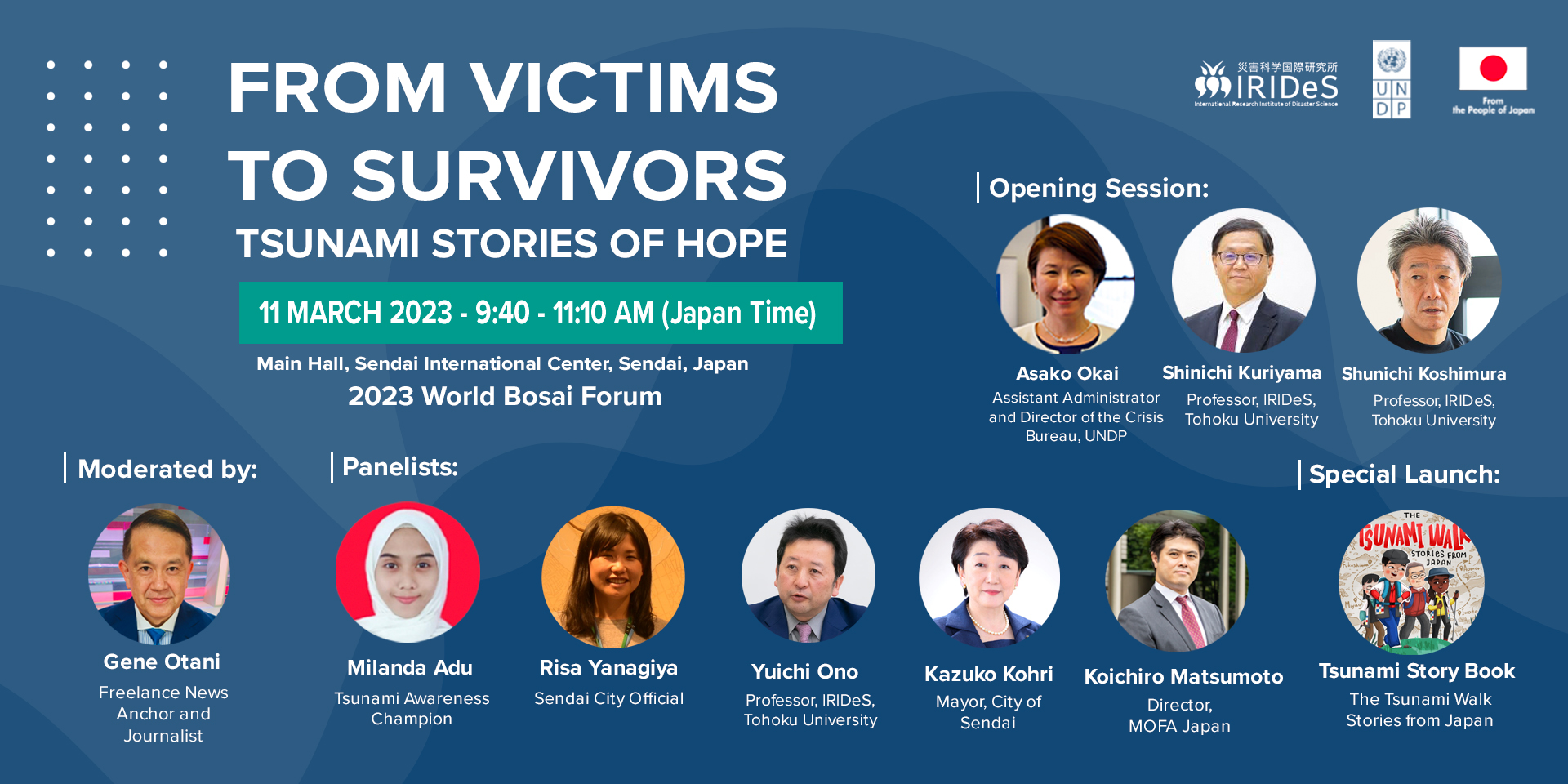Welcome remarks delivered by Asako Okai, UN Assistant Secretary-General & Director, UNDP Crisis Bureau at the World Bosai Forum UNDP, Tohoku University Joint Session
From Victims to Survivors - Tsunami Stories of Hope
March 13, 2023

Raising awareness can save lives and livelihoods, particularly when it is linked to multi-hazard preparedness.
Distinguished guests, ladies, and gentlemen,
Today, we gather on a solemn occasion, the memorial day of the Great East Japan Earthquake, to commemorate the lives lost and to celebrate the resilience of the survivors and their communities.
Together with our partners from Tohoku University, we honor the memory of these victims through stories of hope.
Japan has faced numerous disasters in the past, including earthquakes, typhoons, and tsunamis, and the country has accumulated a wealth of knowledge and expertise from those experiences.
And the lessons learned from the devastating tsunami caused by the Great East Japan Earthquake have been especially valuable.
One of the most important lessons is the crucial role of awareness in disaster preparedness and early action.
Raising awareness can save lives and livelihoods, particularly when it is linked to multi-hazard preparedness.
Across Asia and the Pacific, UNDP has been supporting schools and communities in tsunami-prone areas through preparedness plans and awareness campaigns to mitigate the impact of tsunamis.
Since 2017, we have been working with the Government of Japan to implement a regional project to strengthen school preparedness for tsunamis.
As a result, over 200,000 students, teachers, and school administrators from 450 schools in 24 Asia Pacific countries have been trained in tsunami preparedness and have participated in safe evacuation drills.
Awareness is the foundation of a comprehensive understanding of risks, which can enable early action and help reduce the devastating impact of disasters.
However, we must also acknowledge that we cannot perfectly predict when and where disasters, including tsunami risks, will occur.
That is why it is essential to be prepared for disaster risks every day, as we tend to forget about the risks of disasters and assume that they are far from us.
The voices of people who have experienced tsunamis firsthand remind us of how terrifying the risks of disasters can be, how important it is to prepare in advance, and how preparedness can save lives.
In today's session, we have esteemed panelists who are sharing their experiences and lessons learned from their tsunami experiences or from participating in training and drills conducted by UNDP. They are working to strengthen disaster preparedness, including tsunami preparedness, in their communities and schools.
Our Tsunami Storybooks feature the accounts of people who have experienced tsunamis and have passed on their knowledge to save others. The books are designed to raise awareness by capturing young readers' attention through simple words and actionable information.
Today, we are launching the 5th storybook, which features the story of a trip to visit the area hit by the Great East Japan Earthquake, where we met with people in Tohoku to listen to their voices and learn from their strength and resilience.
Disaster risk reduction requires a collective effort from all stakeholders, including governments, civil society, academia, and the private sector.
But above all – it requires us to listen and to learn from each other.
With joint effort and shared experience we can build a more resilient future for all.
Thank you.

 Locations
Locations